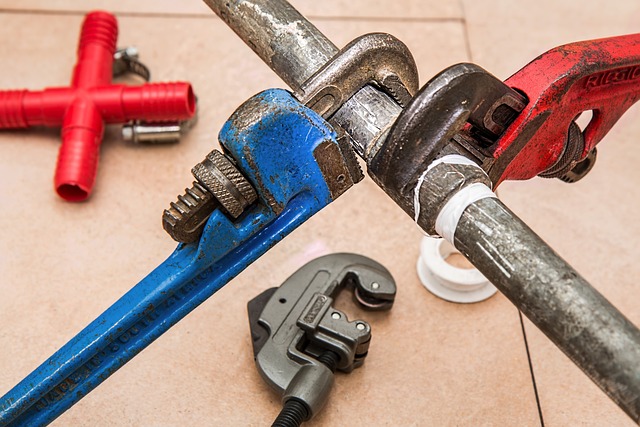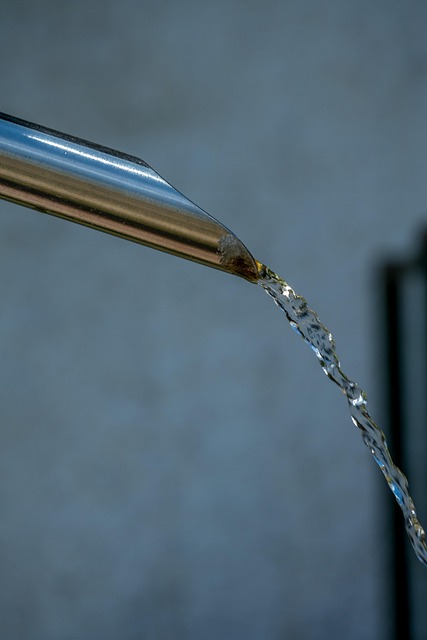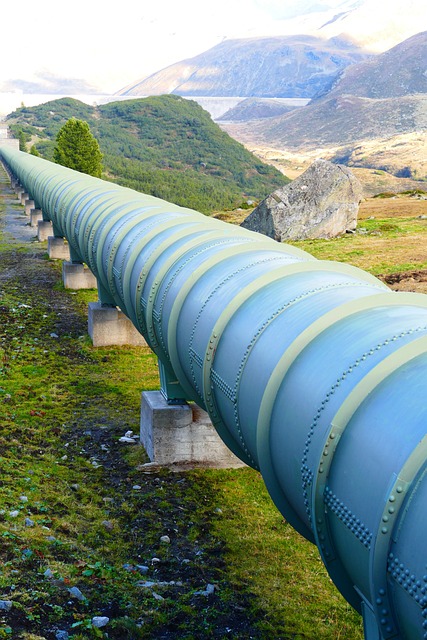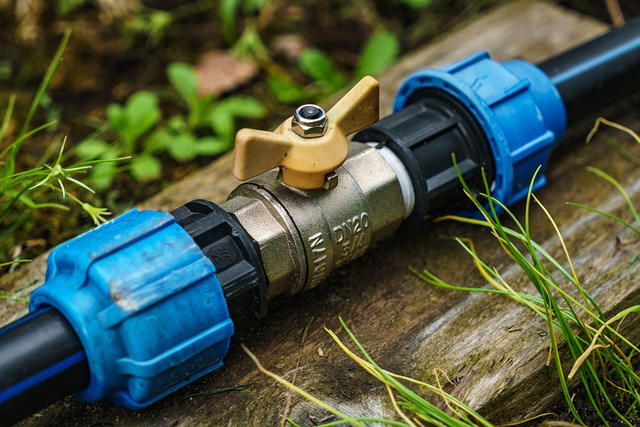Understanding pipe leak origins is crucial for efficient detection. Common sources include pipes, fittings, valves, and appliances. Initial signs are subtle (small puddles, odd smells) while evident indicators (water damage, ceiling/floor issues) signal larger problems. DIY methods aid basic leak identification but complex systems may require professional tools and expertise. While DIY solutions temporarily fix minor leaks, complex plumbing needs professional intervention to prevent costly renovations and structural damage. Effective pipe leak detection involves visual inspections, moisture meters, thermal imaging cameras, regular maintenance, and sealing entry points (Pipe Leak Detection Tips).
Are you tired of repeatedly fixing leaky faucets or pipe bursts? Understanding when to call a plumber for leak detection is crucial to prevent substantial water damage and costly repairs. While DIY methods can offer temporary fixes, they often fall short in identifying complex leak sources. This article guides homeowners through common leak signs, highlights why professional plumbers are essential, and provides effective pipe leak detection tips. By understanding these insights, you’ll know exactly when to seek expert assistance for thorough and lasting solutions.
- Understanding Common Leak Sources and Their Signs
- When DIY Solutions Fall Short: Why Professional Plumbers Are Essential
- Effective Pipe Leak Detection Methods and Tips for Homeowners
Understanding Common Leak Sources and Their Signs

Leaks can originate from various sources within a plumbing system, and recognizing these signs early is crucial for effective leak detection. Common areas to look for potential issues include pipes, fittings, valves, and appliances like water heaters or dishwashers. Signs of a pipe leak might be subtle at first, such as small puddles under sinks or odd smells coming from the walls. More noticeable indicators could be visible water damage on ceilings or floors, with stains expanding over time.
Pipe leak detection tips include regular inspection of these problem areas and being vigilant for unusual noises like dripping or gurgling sounds. DIY methods can help identify potential leaks, but they might not always pinpoint the exact source. Complex plumbing systems often require professional tools and expertise to trace and isolate leaks effectively.
When DIY Solutions Fall Short: Why Professional Plumbers Are Essential

While many homeowners attempt DIY solutions for minor leaks, there comes a point where these temporary fixes simply aren’t enough. Complex plumbing systems often involve hard-to-reach areas and intricate connections that require specialized tools and expertise to effectively diagnose and repair. A professional plumber brings invaluable skills, knowledge of the latest technology, and access to advanced equipment for pipe leak detection. They can pinpoint issues with precision, ensuring thorough repairs that prevent further damage and costly renovations.
Relying on DIY methods for prolonged periods can lead to overlooked leaks, causing water damage that escalates over time. Professional plumbers offer peace of mind, providing timely interventions that save you from the stress and financial burden of extensive restoration work. They also help avoid potential health hazards associated with mold growth and structural instability caused by persistent water intrusion.
Effective Pipe Leak Detection Methods and Tips for Homeowners

Effective pipe leak detection methods involve a combination of visual inspection, listening for unusual sounds, and utilizing technology. Homeowners can start by checking for obvious signs like water stains on walls or ceilings, dripping faucets, or moist patches around pipes. However, some leaks may be hidden behind walls or floors, making DIY methods insufficient.
Advanced leak detection tools such as moisture meters and thermal imaging cameras are highly effective in pinpointing the source of a leak, even in hard-to-reach areas. Regular maintenance practices like inspecting pipes for corrosion or damage and sealing potential entry points can also prevent leaks from occurring in the first place.
While do-it-yourself (DIY) methods can help identify potential leak sources, they may not always detect hidden or complex pipe leaks. Professional plumbers employ advanced tools and techniques for accurate pipe leak detection, ensuring every drop is accounted for. By trusting experts like these, homeowners can avoid extensive water damage, reduce costly repairs, and maintain a peaceful mind. Incorporating the effective Pipe Leak Detection Tips outlined in this article will empower you to recognize when professional assistance is crucial for maintaining your home’s plumbing integrity.
